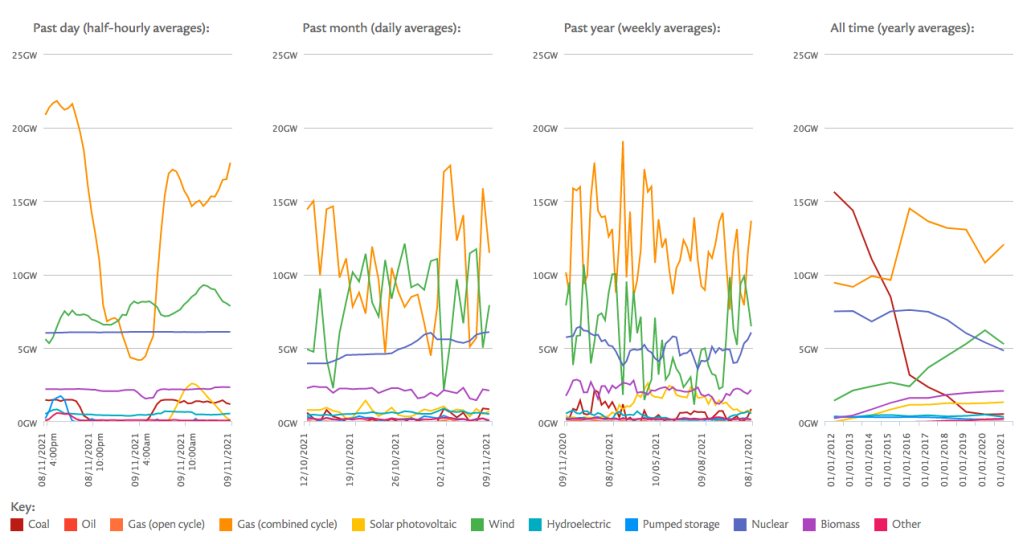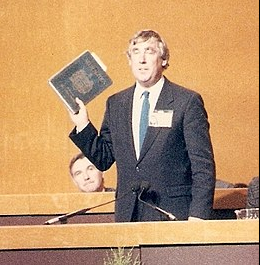It’s less than a fortnight to go until polling day, thousands of people have already voted by post, we’re in the home straight of the election campaign. Going against perceived wisdom, the polls have not tightened in favour of the Conservatives, instead they’ve been hitting some of their worst ever numbers. Before the election many idly speculated that there could be a complete meltdown akin to what happened to the Conservatives in Canada in1993, where the right of centre vote was split and shrunk so they were left with only two seats.
This would be quite the reversal of fortune, considering the last election gave the Conservatives their biggest majority since 1987. Some people are predicting the Tories will get under 100 seats – last time out they got 365, their modern era baseline is 165 seats in 1997. Could the Conservatives really be heading for a once-in-a-century level extinction event? It’s certainly enjoyable to talk about it – let’s weigh up all the factors in play . . .
Tory wipeout: the case for
Looking at the last five years, the Conservatives would say they’ve been battling exceptional headwinds in terms of the Covid pandemic, the Ukraine – Russia war and the cost of living crisis associated with both of these. Such rotten luck. If you’re not a Conservative you’d point out that choices the Conservatives have made in office have made these crises worse – the spike in electricity and gas prices is down to how the Conservatives have framed the wholesale prices in utilities, for example. With regard to Covid – we had one of the highest death rates, highest long covid rates, we spent the most money and our economy went down the most, compared to our European peers.
It’s also the case that inflation has rippled around the world but the cumulative inflation total for the UK is worse than our G7 colleagues, the weak £ caused by Brexit has not helped us. It’s been one bad outcome after another – rising waiting lists, NHS dentistry in crisis, the GCSE pass rate started going backwards so they changed grades from letters to numbers to mask the lack of progress. The Tories claim to be the party of law and order but the backlog in the courts is so bad certain petty crimes have been practically legalised.


Ed Davey – planning to eliminate the Blue Wall, Keir Starmer at a Taylor Swift concert this week – he had music lessons with Fatboy Slim you know
I live in a true blue Tory heartland, for many years my neighbours were happy enough to rubber stamp the local MP because despite all the moaning and wailing from the left about austerity they were happy enough. They only pretended to care about public services, but actually they were very pleased with house prices rising, inflation and interest rates being low and Council Tax/Fuel Duty being frozen.
Now my neighbours who are pretty much focussed on their wallets and nothing more are moaning to me about utilities inflation and the price of a pint. This is the Tory hardcore, they are profoundly unhappy, the Tories have lost a significant chunk of this vote for now, either they will stay at home or vote Reform as a protest.
Another thing that’s been noticeable in my local area is for years a lack of concerted effective campaigning for the Tories. For many elections in my ward they didn’t need to, then they faced a challenge from the Greens last year and they were hopeless because they’d never done it before, so they got wiped out. In my local town of Sevenoaks, the Tories were so bereft of voluntary resource they paid for leaflets to be delivered via Royal Mail.
This is part of a bigger picture nationally. Since 2016 the Conservatives have lost 2,637 councillors in the annual local elections, that’s not counting by elections and defections so the total net loss is in the region of 2,800 – 2,900. That’s a huge loss of experienced and skilled local activists and family/friend support groups around them.
Anecdotal reports are that across the country visible signs of support for the Tories are minimal and the Conservative ground game is virtually non-existent. For my part, going to campaign in London last time I had to drive through the posh village of Hartley to the local train station, in election week every third or fourth house had a stakeboard for Gareth Johnson, the Conservative candidate for Dartford (majority 19,160). I’m yet to see a single sign up for him this time.
What of the press’s role in shaping opinion? I think the past five years has been exceptional in terms of the print media’s role. As we know most of the politically partisan media is right wing, however the Conservatives have lost the business press – the FT and Economist no longer support the Tories, and the rest of the newspapers are having a lost weekend. They’ve never been more out of touch with the electorate – there are two agendas will prove to be counterproductive, the obsession with the Red Wall and the War on Woke. Droning on about the Red Wall backfires because most people don’t live in the Red Wall and many people in the Blue Wall feel excluded by that narrative, they actively resent it. The War on Woke is unhelpful for the Tories because largely people simply don’t care, the fact that the National Trust might give some commentary about the unethical past of someone who built a stately home 300 years ago doesn’t matter to someone who’s struggling to put food on the table, pay for their kid’s nursery etc.

Last but not least is the sheer incompetence and fecklessness of those in government. Reports vary but there have been estimates of the Tories wasting £100+Bn on things like ineffective PPE and Covid support fraud, not to mention the costs of the Rwanda deportation scheme and Voter ID. All of a sudden the Tories have been splashing the cash on vanity projects and have lost their reputation for financial rectitude and having a base level of competence. Add in shenanigans around party gate, and the latest scandal – election day bet gate – it’s obvious to those who aren’t that politically engaged, aren’t that ideological that the country could be run better.
These days what achievements can the Conservatives actually point to? A while back it would’ve been ‘we’ve got Brexit done’ and ‘vaccine rollout’ – Brexit, remember, was the most salient issue in the last election and was the Tories’ flagship policy. Because it’s gone as badly as Eurotrash remainiacs like myself said it would they barely mention it. Imagine that, you hoover up 14 million votes pretty much on a single issue, then five years later you sweep it under the carpet. As for the vaccine rollout, our vaccination rate only stayed ahead of our continental neighbours for a few months so it was a very transient achievement. It barely resonates at all now.
Tory wipeout: the cast against
Before we get too triumphalist, we need to consider why predictions of Conservative demise might be overblown. I think we can all be confident they’re going to lose, it’s a question of by how much. A feature of this election is wall to wall polling being a major part of the narrative, as opposed to policies and personalities.
People are setting way too much store by the polling and the MRP calculations predicting individual seat outcomes. Remember the MRP predictions from 2019 were mostly way off, and what we see is that 1% increase or decrease in any direction leads to a hugely different outcome. Seat numbers are hypersensitive to any small movement, like cracking a safe almost.
Carl Sagan once said that an extraordinary claim needs to be backed up by an extraordinary level of evidence.
The predictions that Labour will win well over 400 seats and that the Tories will get under 100 are extraordinary, you have to go back to 1931 for a result when a single party got over 450 seats, and that’s happened just the once since we’ve had universal suffrage. The outlandish MRP seat predictions are made off the back of extraordinary polling numbers, with the Tories regularly polling under 20% and occasionally in third behind Reform.
My nose has been put out of joint by the MRPs because they regularly show us Lib Dems in Sevenoaks trailing behind Labour, despite the fact they’re not campaigning in the seat, have no councillors and usually finish behind us in General Elections. If the MRPs can’t pick up local activity factors, our campaign in Sevenoaks is x 4 what it was last time, you wonder what else they fail to detect.
For the last 12 months pundits have been pouring scorn on the polls. Data gathering methods have changed with polling companies migrating from phone polls to internet polls. A crucial difference here is while companies still try to be scrupulously even handed in getting a sample from across the country, gender balanced, socio-economically representative etc, they’re now relying on people signing up to do surveys. With voter intention opinion polls this, the sceptics believe, has led to a high-engagement bias, I.e. political zealots are very keen to give their opinions, thus crowding out those who have average or below-average levels of political engagement but still do vote. This would benefit Reform, the Greens and the Nats, and take a little away from Cons, Lab and Lib.
If failing to account for the high-engagement bias of responses to opinion poll requests has led to skewed data, there might be an underestimate of the Tories’ true level, combined with the historic phenomenon of the ‘Shy Tory’ who fades into the background in polite society when they’re particularly unpopular but still puts an X in their box come election day. Those who waved a flag for Gareth Johnson in Hartley in 2019 but have passed on stakeboard this time around still might be voting for him, just with less patriotic fervour than before.

Sometimes it’s difficult to know what the polling data really means – recently Rishi Sunak’s personal ratings have been dire, but a huge amount of vox pops show people have sympathy, or feel pity for the situation he’s in. Whether that’s picking up a genuine strain of goodwill for him the pollsters can’t see, or reflects the singular attitudes of people at a loose end in town centres during the working week we’ll find out on July 5th.
































